Cisnero Inquiry Finally Ends With Allegations of Cover-Up
The decade-long investigation into Clinton Housing Secretary Henry Cisneros has finally ended with a frustrated prosecutor claiming a massive cover-up.
After the longest independent counsel investigation in history, the prosecutor in the case of former Housing Secretary Henry G. Cisneros is finally closing his operation with a scathing report accusing Clinton administration officials of thwarting an inquiry into whether Mr. Cisneros evaded paying income taxes. The legal inquiry by the prosecutor, David M. Barrett, lasted more than a decade, consumed some $21 million and came to be a symbol of the flawed effort to prosecute high-level corruption through the use of independent prosecutors.
Mr. Barrett began his investigation with the narrower issue of whether Mr. Cisneros lied to the Federal Bureau of Investigation when he was being considered for the cabinet position. He ended his inquiry accusing the Clinton administration of a possible cover-up. His report says Justice Department officials refused to grant him the broad jurisdiction he wanted; for example, Attorney General Janet Reno said he could look at only one tax year. And after Internal Revenue Service officials in Washington took a Cisneros investigation out of the hands of district-level officials in Texas, the agency deemed the evidence too weak to merit a criminal inquiry, a conclusion strongly disputed by one Texas investigator. Former officials of the Justice Department and the I.R.S. dismissed Mr. Barrett’s conclusions in appendices attached to the report, saying the findings were the product of an inquiry that was incompetently managed from the start.
After being indicted on 18 felony counts, Mr. Cisneros pleaded guilty in 1999 to a misdemeanor charge of lying to investigators. He was later pardoned by President Bill Clinton.
Mr. Barrett kept his office open more than six years after the law that created the independent counsel system was allowed to die. Lawmakers in both parties had wearied of the many inquiries that had failed to achieve the goal of removing political influence from criminal investigations of administration officials.
[…]
Mr. Barrett’s 746-page report said that the tax and obstruction phase of the inquiry ended without a definitive conclusion, but it declared: “These agencies’ treatment of possible charges against Cisneros was at best questionable and at worst represented serious wrongdoing. There seems to be no question that Cisneros was given special consideration and more limited scrutiny because of who he was – an important political appointee.”
The NY Daily News adds,
Then-IRS Commissioner Peggy Richardson, a close friend of Sen. Hillary Clinton (D-N.Y.), was involved in efforts to quash the probe, a source close to the case alleged. But Richardson’s role was cut from Barrett’s report, which went through 26 drafts, because Democratic law firm Williams & Connolly successfully pressured Barrett to remove a section of the report naming her, a source said. The law firm represents Cisneros, former President Bill Clinton and Hillary Clinton. A Williams & Connolly attorney declined to comment.
Before Cisneros’ 1999 guilty plea, Barrett’s office began a second phase based in part on allegations in a 1997 memo to IRS headquarters by whistleblower John Filan, an IRS criminal investigations chief in Texas. In a memo obtained by The News, Filan accused top Clinton officials, including senior IRS lawyer Barry Finkelstein, of covering up Cisneros’ tax fraud case by transferring it to two inexperienced lawyers in Washington. Filan wrote that the two got orders “to kill the case from Barry Finkelstein at the outset.”
My strong suspicion is that Barrett is right and that there was indeed a cover-up in the case. It would certainly be in keeping with the entire history of the Clinton administration and, to a lesser extent, the culture of presidential politics for the last several decades.
That said, however, it is absolutely outrageous for a prosecutor who has spent eleven years and $23 million of the taxpayers’ money to make public allegations that he is not prepared to back up with criminal charges. This tactic, which is becoming increasingly widespread, is an abuse of the power of office.
Barrett’s odyssey is just one more case-in-point why the Special Prosecutor/Independent Counsel idea, while well intentioned, needed to die. Given unlimited resources, no deadline, and a mandate to find wrongdoing, such excesses are a foregone conclusion even with honorable men like Barrett, Kenneth Starr, and Peter Fitgerald in charge.
On a related note, John Hinderaker notes that the NYT characterizes the leaker of the report as “someone sympathetic to the Barrett investigation who wanted his criticism of the Clinton administration to be known” and wonders whether a similar description would be applied to a Bush administration critic.
Ed Morrissey thinks this could be devasting to Hillary Clinton’s ambitions. Tom Bevan disagrees, pointing out that,
If you look at the considerable amount of baggage she’s dragged around for years without any adverse electoral effects – exorbitant cattle future profits, the unseemliness of Travelgate and Filegate, the mysterious appearance of the Rose Law Firm billing records, Lincoln Bedroom sleepovers, etc – it’s hard to imagine anything coming out of the Barrett report that will be explosive enough to do her real political harm.
Unless proven otherwise, Bevan’s guess strikes me as the safer bet. Indeed, her partisans will point to this as just another part of the Vast Right Wing Conspiracy.

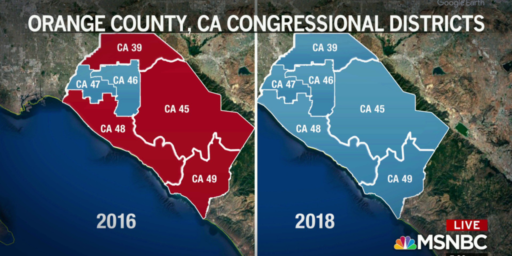
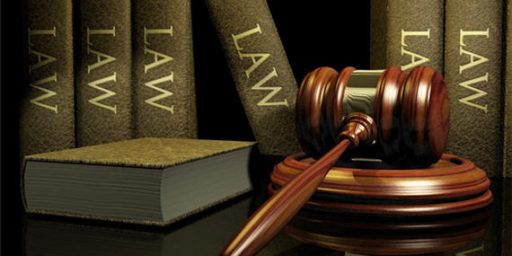
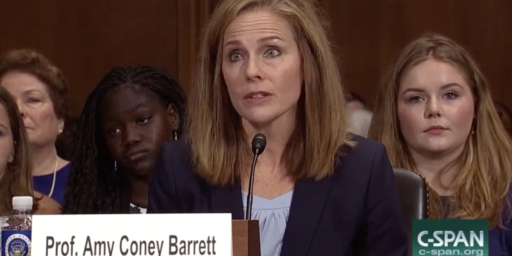
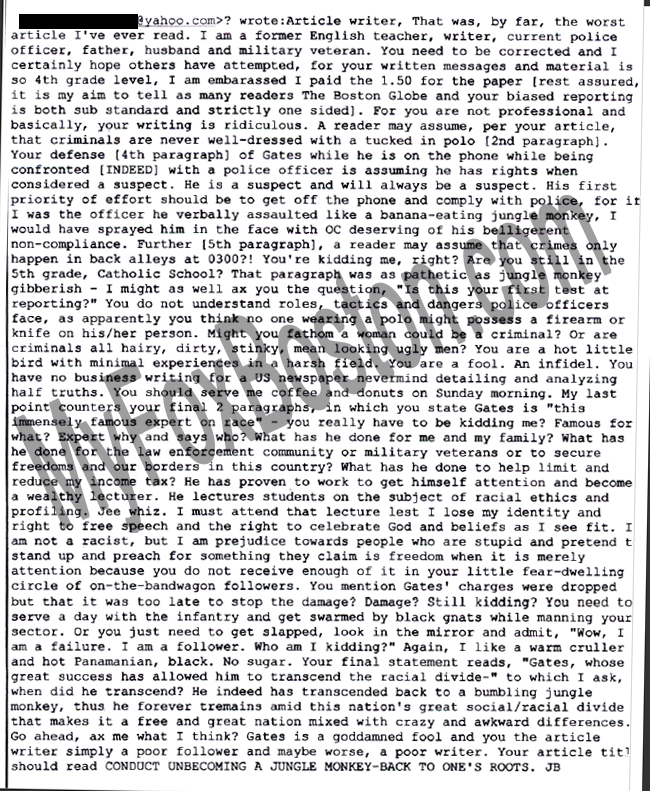
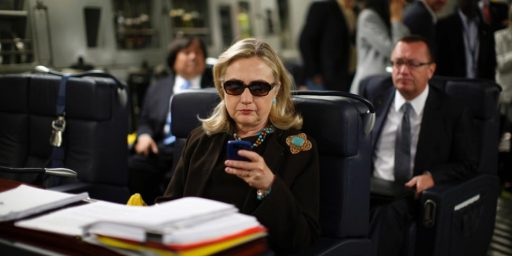
“This tactic, which is becoming increasingly widespread, is an abuse of the power of office”
It seems to me that it was only widespread during the Clinton years when we had daily briefs (leaks) about virtually all of the investigations. Now we have the reverse, no actual investigations being done and when they are, e.g. White House staff being indicted and unless there’s an indictment, no other info is released. I think that latter is the better approach. Even though we would all like to know what, say Patrick Fitzgerald has found out, it doesn’t do anyone good to release this kind of statement without charges.